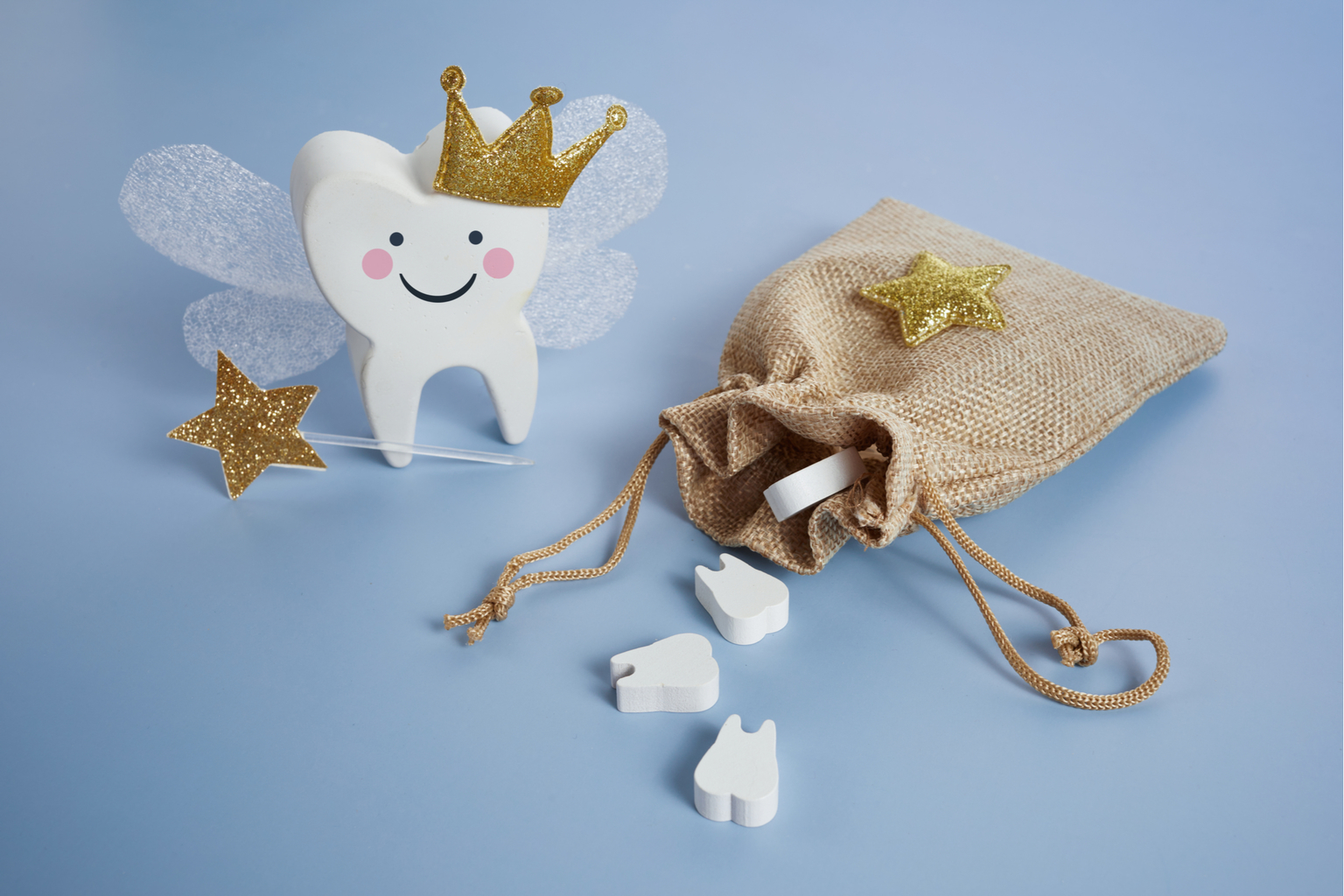The other day, our daughter Hana lost two teeth and we needed money. Quick. By the break of dawn at the very latest.
“Do you have dollars?” my wife asked. I thought: ‘Is this the right occasion to discuss our financial situation?’
“Well, I still have a few in that US account from my former employer. But I only wanted to touch those in cases of utter emergency.”
“That won’t do! We need cash!”
“Are we in trouble? Is there something you are not telling me?”
Turns out, there were two things my wife hadn’t told me. The Tooth Fairy was coming to our house and she only accepts US currency.

Tooth Fairy International
I didn’t even know the Tooth Fairy was coming all the way to Japan. I wonder if she’s also coming to my home country of Germany these days. She certainly wasn’t there for me when I lost my baby teeth in the 1970s. In recent decades, however, Germany, like Japan, has appropriated many international customs. My generation only knew these from TV, if at all. Mostly marketable customs, the adaptations powered by merchants of flowers, greeting cards, costumes, candy and confectioneries. When I was a child, the only thing I knew about Halloween was that I was not allowed to watch the movie. Today, Germany entertains an entire trick-or-treat industry. A lot of jobs would be lost if someone like me came into power and banned all mindless imitations of other countries’ holidays.
Admittedly, the Tooth Fairy might not be as marketable as other international traditions. Still, on the way to the dentist earlier that eventful day, my wife told our daughter the Tooth Fairy had Japan on her route and only dollars in her magical purse.
How exactly Hana’s mother drove herself into that dead end I don’t know since I wasn’t there. I used to trot along on dentist visits, mostly because I felt protective of my poor baby but also because I liked the place. It has chairs with different themes like cartoon animals or princesses. And in the waiting room, there’s a TV showing the clinic’s staff performing educational sketch comedy in silly costumes. It’s like stepping into a mini amusement park to the soundtrack of occasional drilling and hysterical crying. These days, however, we try not to overcrowd the places we visit, so I stay at home and worry myself sick.
Strictly speaking, Hana hasn’t lost her teeth in any sense of the expression. At seven years of age and with her early pearlies unwilling to make way for progress, her dentist decided to pull some out and see if the others get the hint. The procedure went without drama. Hana arrived home with a big smile, proudly presenting the hole in her mouth and the two tiny teeth she got to keep in a small plastic box shaped like a tooth.

Monetary Troubles
“I have a ¥500 coin,” I told my wife. “I’m sure Hana will understand that the Tooth Fairy has to exchange her money to local currency when crossing borders.”
My wife sat over an apparently secret money box I now saw for the first time. Going through it, she said: “I have Canadian coins and Australian … Only banknotes from the US.” I could see she had much more: bills and coins from almost every country she ever visited, with or without me.
While we discussed the dollar dilemma, Hana wrote a letter to the ethereal exchanger of teeth for cash: “Dear Tooth Fairy, please only take the teeth, not this letter or the box, as I want to keep them.”
I wouldn’t want to part with that cool box either, but I had to ask: “Why don’t you want the Tooth Fairy to take your letter?”
She said: “I’m sure you want to keep it because I made it and it’s cute.”
She knows me so well. They grow up so fast.

Letters to Santa Claus
That reminds me of last Christmas. The holiday, not the song, but you can thank me for putting that into your head, too, if it hadn’t been there already. Last holiday season, Hana taped not only a handwritten list of her wishes on our window but also a map of the Tokyo subway system, so Santa wouldn’t get lost.
This year, she is drafting another letter to Santa. It wasn’t quite planned that way. The plan had been to gently break the truth before she starts school, so she doesn’t have to hear it from somebody else. Somebody who might break it to her less gently. But then there were so many things to take care of (mainly name-stamping every item of school supplies) that the truth about Santa got lost in the shuffle.

Thankfully, Google relieved my conscience. According to my internet research, the average age for kids to become disillusioned about Christmas is eight to nine. That buys us at least another year. I also learned that having other kids sow doubts into her mind is the recommended way to go. Seems like a bit of a cop-out, though.
If we had to tell her now, while waiting for the Tooth Fairy to work her capitalist magic, we would hardly sound plausible. “So, Santa doesn’t exist. As for the Easter Bunny… what were you even thinking? Be realistic. Oh, the Tooth Fairy? Well, she exists, of course.”
Consequently, Santa Claus will be responsible for gift selection and delivery one more time this year. One gift, however, she got early — a $2 coin from Australia and a $1 note from the US, stuffed into a tooth-shaped plastic box under her pillow.
Read more about Hana and her dad in the other Tokyo Daddy Issues columns:
Tokyo Daddy Issues: Shall We Slay Demons or Sith Lords?
Tokyo Daddy Issues: Soak Your Children in Wine and Coffee
Updated On February 14, 2023








